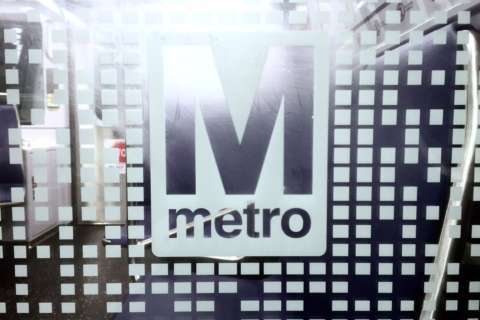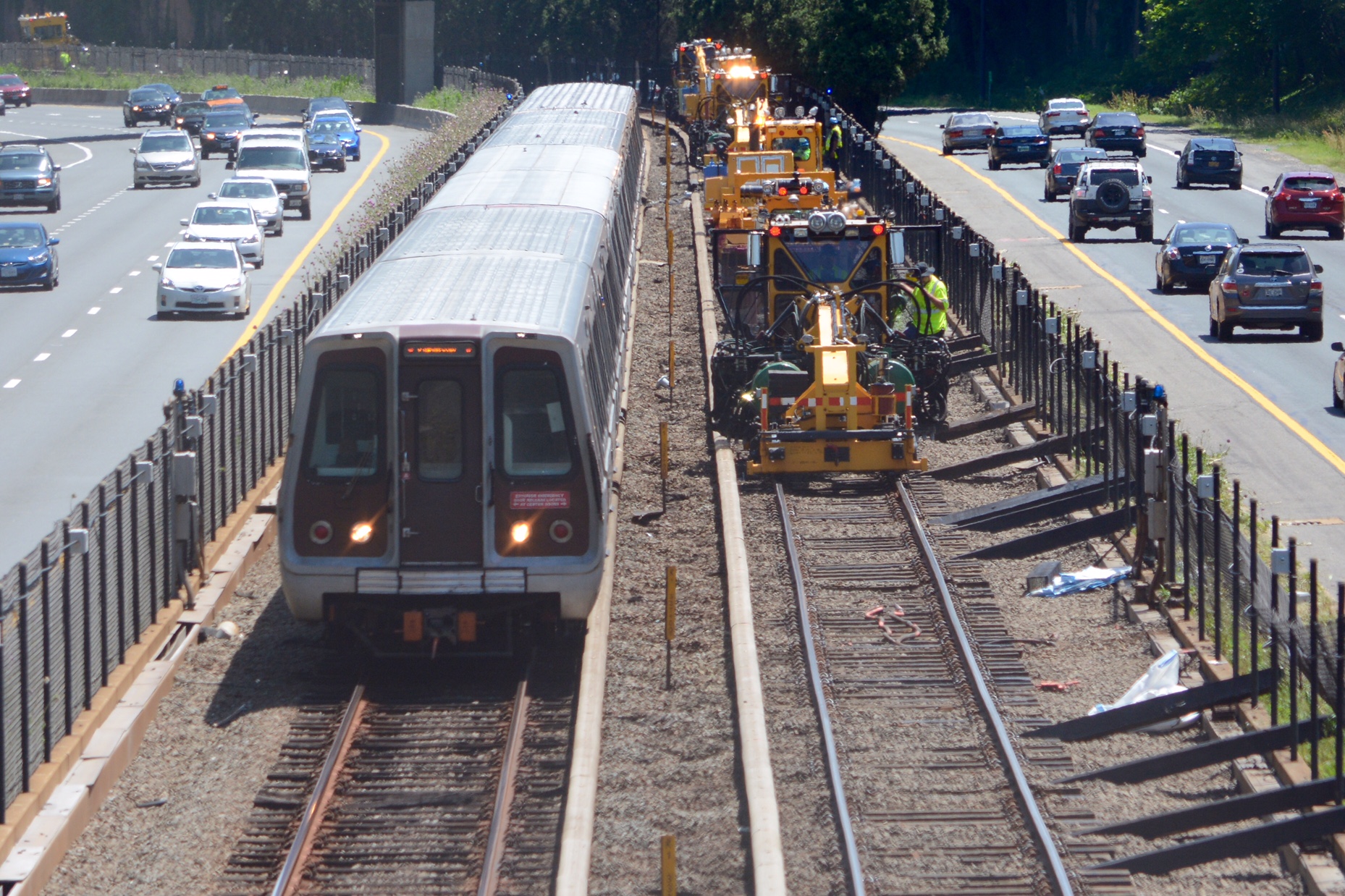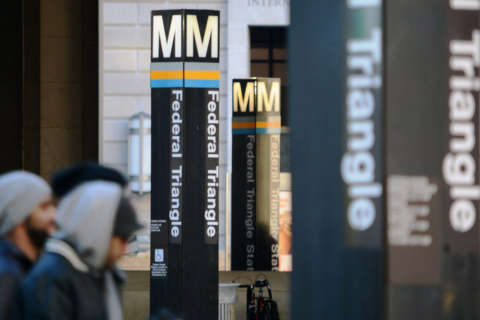WASHINGTON — Members of the long-awaited Metrorail Safety Commission gathered for the first time Wednesday, but the region still has significant work to do before taking back local safety oversight from the Federal Transit Administration.
Former National Transportation Safety Board Chairman Mark Rosenker, a Virginia appointee to the commission, said the orientation was a productive step toward helping make Metro “the premier and most safe transit on rail in the United States.
“I think we can do that,” Rosenker said.
Metro General Manager Paul Wiedefeld attended the start of the roughly three-hour orientation for the commissioners representing Maryland, Virginia and the District. All but two of the appointees were able to attend Wednesday at the Metropolitan Washington Council of Governments building.
The first official meeting of the commission could happen within the next few weeks after all commissioners are formally confirmed.
The commission was first recommended years ago, and some initial work began in 2010 after the deadly 2009 Fort Totten crash. But momentum increased in 2015 after Carol Glover died on a smoke-filled train near L’Enfant Plaza and the Federal Transit Administration took over safety oversight.
Rosenker said “there have been some improvements” since the Metro investigations during his time with the NTSB.
“I hope that we don’t have to be too busy investigating incidents or accidents,” he said.
Another former NTSB chairman, Christopher Hart — who led the panel during its investigation into the Glover’s death — is also on the new commission.
Rosenker hopes the Metrorail Safety Commission will partner with Metro in raising the bar for system safety, rather than developing an adversarial relationship. He also recognizes that a major benefit of the commission is that it can actually give NTSB recommendations important teeth, up to and including ordering that service be stopped in all or part of the system.
“The beauty of this commission is we have the opportunity to make something happen,” Rosenker said.
Among the orientation topics was an emphasis on why rules are important to a safety culture in which everyone involved makes a shared effort. Also discussed were the nuts-and-bolts issues of how the commission may operate.
Wiedefeld emphasized Metro’s commitment to safety moving forward.
“I’m actually thrilled that [the Metrorail Safety Commission] is getting off the ground,” said Wiedefeld, who often emphasized that “safety trumps service” in many of Metro’s decisions now.
The U.S. Department of Transportation has been withholding millions of dollars in funding from the District, Maryland and Virginia until the commission is fully up and running.
The Metrorail Safety Commission is established through an interstate compact, and, like Metro, will require funding from Maryland, Virginia, D.C. and the federal government. The budget is expected to be based on $1.6 million in annual federal funding, plus around $1 million per year from each jurisdiction to cover the balance, depending on the required budget. A full funding agreement with Maryland, Virginia and D.C. would be one of the first actions expected at the commission’s initial meetings in the coming months.
Rosenker described a high-end estimate of $5 million per year in commission costs as potentially overly optimistic, given the amount of expertise that can be required for investigations.
Because the previous local agency oversight agency, the Tri-State Oversight Commission (TOC), was run by state employees detailed to the commission, the total budget was not always clear.
Goals, enforcement
The new Metrorail Safety Commission’s goals are to take back local control of safety oversight, adopt safety standards and metrics, approve Metro safety plans, investigate hazards and incidents and enforce corrective action plans. It will also establish transparency rules that comply with the federal Freedom of Information Act for open meetings and documents, while still allowing Maryland, Virginia and D.C. leaders to have more immediate access to critical information.
The commission has enforcement powers, including subpoena powers, in investigations of specific incidents and in ensuring that Metro is complying with its own plans. The commission is also required to audit Metro’s safety operations and goals, and can undertake any investigation it chooses related to safety in the rail system.
Fines issued can only be used to pay for safety-related improvements.
Suspending service in all or part of the system requires a unanimous vote of the commission, because it is such an extreme step meant to be used only in the most serious of circumstances, while some other powers can be delegated to staff.
Next steps
The commission must hire an executive director and other staff, meet other federal certification requirements and demonstrate its capabilities before the FTA passes safety oversight back to the region, which could still be up to a year or more away.
An executive search contractor has compiled a slate of candidates for the executive director position, some of whom have called Metrorail Safety Commission members to inquire about it. For lower-level staff, the commission could continue short-term consultant contracts until more permanent staff can be hired.
FTA contractors are already working on transition plans, but no date can be set for a transition until more steps are taken. Commission members plan to meet with both the FTA and Metro staff after the commission is organized to finalize some of those details.
The commissioners also learned Wednesday that the Metropolitan Washington Council of Governments has reached an agreement for a one-year lease of about 1,600 square feet of office space for the commission in the council’s building near Union Station. That is just part of the significant background work that has been going on over the last few years to allow the commission to hit the ground running.
The previous local oversight body, the TOC, remains active even with the FTA oversight of Metro, and has had some of its latest recommendations incorporated into a recent FTA safety directive. The TOC did not have the power to require changes for Metro, only to recommend them.
In addition to having that power to shut down service in areas of concern (in specific circumstances), the new commission will have the power to direct spending toward certain safety issues.
Similar to the TOC’s procedures, the commission would notify Metro of planned inspections and the need for investigations in most cases. There would also be ongoing comprehensive audits of various areas every three years.
John Contestabile, a Maryland appointee to the commission who has also been on the TOC, suggested that the commission could adopt some existing TOC policies and procedures to get off the ground, then make revisions as the commission moves forward.
“Don’t let perfection be the enemy of the good,” Contestabile said.
Many of those policies with tweaks incorporated are included in the proposed documents that are set to be given to the commission for approval during its early meetings.
The preparation work should help the commission truly take control of safety oversight over the next year or so, said Kanti Srikanth, the Council of Governments’ transportation planning director, during Wednesday’s orientation.
“After three years of work, this is really a milestone event for us,” Srikanth said. “… Our commitment to ensuring the safety of Metro remains firm.”
Buses
The Federal Transit Administration did not take over responsibility for Metrobus safety system oversight when it intervened in late 2015. Similarly, the Metrorail Safety Commission will only be responsible for the rail system.
The FTA did separately make a series of bus safety recommendations in mid-2015, each of which Metro has addressed with corrective action plans.
Who’s who
The members of the new Metrorail Safety Commission comprise two members and an alternate each from Maryland, Virginia and D.C. The members include …
Mark Rosenker (Virginia): A former chairman of the NTSB (2005—2009), Rosenker is currently a transportation safety consultant. He serves on the boards of several companies and works as a safety analyst for CBS News. Rosenker served on the NTSB from 2003 to 2009 after working for the United Network for Organ Sharing and the Electronic Industries Alliance. He is a retired major general in the Air Force reserve.
Greg Hull (Virginia): A former assistant vice president of the American Public Transportation Association, Hull has worked on hundreds of safety reviews and investigations. A dual U.S.-Canadian citizen, Hull worked in Calgary’s transit system from 1979 to 1999.
Robert Bobb (D.C.): A turnaround specialist, Bobb has served as emergency financial manager of Detroit Public Schools and is a former city administrator for the District. He has also worked in other cities, including Richmond.
Christopher Hart (D.C.): A member and former chairman of the NTSB, Hart has also worked in high-level safety positions in the National Highway Traffic Safety Administration and the Federal Aviation Administration.
Chris Geldart (D.C. alternate): Now a management consultant, Geldart is a former director of the District’s Homeland Security and Emergency Management Agency. He also worked as the Federal Emergency Management Agency’s director of the national capital region coordination office and for the state of Maryland following his service in the Marine Corps.
Howard Roberts (Maryland): A transit and rail expert who has experience working on “safety culture” issues as a consultant, Roberts has also served as the president of New York City Transit, the division of New York’s MTA that runs the subway system. During his tenure, New York established a joint safety task force with the transit union to address track worker safety issues. In addition to his consultant work, Roberts also worked at the Philadelphia-area’s SEPTA agency.
Debra Farrar-Dyke (Maryland): A former senior manager responsible for minority business and other contracting at Metro, Farrar-Dyke also managed purchasing policies and worked on labor relations during more than 30 years at the transit agency. She is a member of the Maryland Transportation Commission.
John Contestabile (Maryland alternate): A homeland security expert at the Johns Hopkins University Applied Physics Lab, Contestabile is a former Maryland Department of Transportation acting assistant secretary and former director of the Office of Engineering and Emergency Services. He served on the TOC from 1999 to 2007 and is a former rail incident investigator.
Virginia’s alternate has not yet been named.







